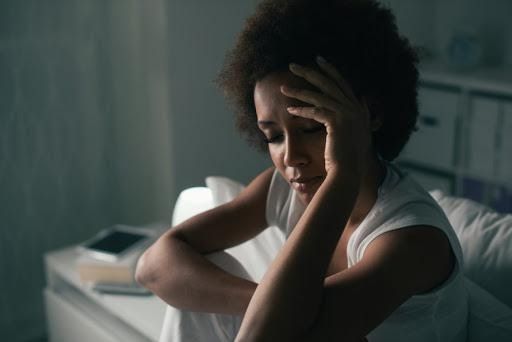Sleep deprivation is a common problem these days. Many people complain of sleeplessness. They just spend nights moving here and there, changing sides on the bed or looking at their phones. Their eyes just refuse to shut for sleep.
Sleep deprivation effects can be quite major ones. A sleepless night results in a cranky, tired, and fatigued day. Restorative sleep is certainly very important and it needs to be managed well. Sleep deprivation effects can be quite crucial and you must know all about it.
Sleep Deprivation Effects
Getting less than 7 hours of sleep consistently can eventually lead to health consequences that can adversely affect your entire body. Without adequate sleep, your mind and body refuse to function normally and it will hence decrease your quality of life. Sleep deprivation can have short as well as long term effects as listed below:
Short Term Effects of Sleep Deprivation
Lack of sleep or insomnia can have minor effects on our body that may disturb you on a day-to-day basis:
- Mood swings and anxiety: Not getting adequate sleep can have a direct impact on your mood. You may notice that the following day of a sleepless night, you will feel irritated and anxious. Your concentration level decreases and your mood remains off. A good night’s sleep makes our mood all happy and cheerful the next day. We feel energetic and jolly.
- Fatigue: A sleepless night can be the major cause of the fatiguing day. After a hectic day if you will not sleep well at night then your body energy remains low. Sleep is like a charger for our body. A sleepless night will make you feel fatigued and energyless.
- Poor decision making: A sleep-deprived person loses the ability of decision making. He/she loses the sense of deep thinking and calculating. Sleep deprivation can make a person less attentive and he/she sometimes takes the wrong decision.
 Sleep Deprivation
Sleep Deprivation- Lower appetite: Sleep deprivation can lead to a tasteless tongue and lack of hunger. A person who spent a sleepless night will not eat properly. He/she will not have a good appetite and will eat lesser than usual. They will only be hungry for sleep and not food.
- Forgetfulness: No sleep night could be a reason for someone forgetting to attend a meeting or forgetting to meet someone or forgetting anything that was planned for the next day. Sleep deprivation can a serious cause of forgetfulness.
Long Term Sleep Deprivation Effects
Sleep deprivation for a long time can put you at serious risk of mental and physical health. Following are a few chronic effects of sleep deprivation:
- Hypertension: Hypertension or high blood pressure can hit you if you have insomnia for a longer time. Proper sleep is very important to maintain good heart health and healthy blood pressure. An individual’s blood pressure will get disturbed due to a lack of sleep. Hypertension can further lead to heart stroke and other heart-related diseases.
- Obesity: Sleep deprivation can lead to excess weight gain. Not sleeping at night will make you hungry and you will nibble on midnight snacks which will only give you extra kilos. Sleep also has a direct impact on two hormones leptin and ghrelin which control the feeling of hunger and fullness. Feeling of fatigue due to sleep deprivation will lead to less physical activity which will also accommodate increasing the chances of obesity.
 Sleep Deprivation
Sleep Deprivation- Hormonal imbalance: Hormonal production depends majorly on our sleep. If a person fails to get 5-7hours of uninterrupted sleep then it may lead to major hormonal imbalance. In adolescents and children, growth hormone is affected due to lack of sleep and it also impacts bones and muscle strength. In women, sleep deprivation can also lead to chaotic hormones which impacts them physically and mentally.
- Weak immune system: While sleeping our body produces protective and infection-fighting agents like antibodies and cytokines. It protects us from diseases by making our immune system more efficient. Sleep deprivation hinders the production of these agents which in turn weakens the body’s immunity.
Stages of Sleep Deprivation Effects
Here are the stages of sleep deprivation that are determined by how many hours of sleep you’ve missed:
- Stage 1 (after 24hours)- It is common to miss 24 hours of sleep and it does not have major health issues. A person sleepless for 24 hours can feel drowsy, irritable, angry, puffy eyes, and fatigued.
- Stage 2 (after 36hours): Being sleepless from 36 hours can have more intense symptoms. The body and brain will be affected to some extent. One may feel forgetfulness, behavior changes, irritable, slow reaction, increased errors and difficulty in retaining new information.
- Stage 3 (after 48hours): This is an extreme case with chronic symptoms. This stage has some major life-altering effects. Sleep deprivation from 48hours can cause hallucination, depression, anxiety, uncontrolled emotions, and extreme tiredness.
- Stage 4 (awake for 72 hours): This stage will have chronic symptoms and need immediate help. The symptoms include illusion, delusion. depression and unpredictable disorder in the brain.
- Stage 5 (awake for 96 hours or more): In this situation perception of reality will be severely distorted. This situation is unbearable and needs to be corrected under expert supervision. One loses senses in such a situation and the mind and body can react in any manner.
 Sleep Deprivation Treatment
Sleep Deprivation TreatmentSleep Deprivation Treatment
Treatment is highly recommended in extreme situations of stages 4 and 5. If a person fails to sleep due to physical or psychological difficulty, then he/she needs help. A therapist or a sleep specialist can help in such a situation.
One will have to take a few medicines and will have to get some treatments done. Treatments include relaxation techniques, stimulation control, cognitive behavioral therapy, etc.
Can no sleep cause long term damage?
Sleep deprivation for a long time can be a serious case of insomnia. It can cause unpredictable physical or mental damage. Not being able to sleep can make you prone to diseases like hypertension, diabetes, chronic headaches, memory loss, and paralysis. It is very important to pay attention to your sleeping problem.
Sleep deprivation is not a condition and needs special attention. If you are unable to sleep then get some help do not make it a lifestyle. But precaution is better than cure so indulge in activities like yoga, walk, and breathing exercises to help you sleep better. Maintaining a healthy lifestyle will help you greatly with your sleeping issues.
Also read; 7 Tips To Fall Asleep Faster

